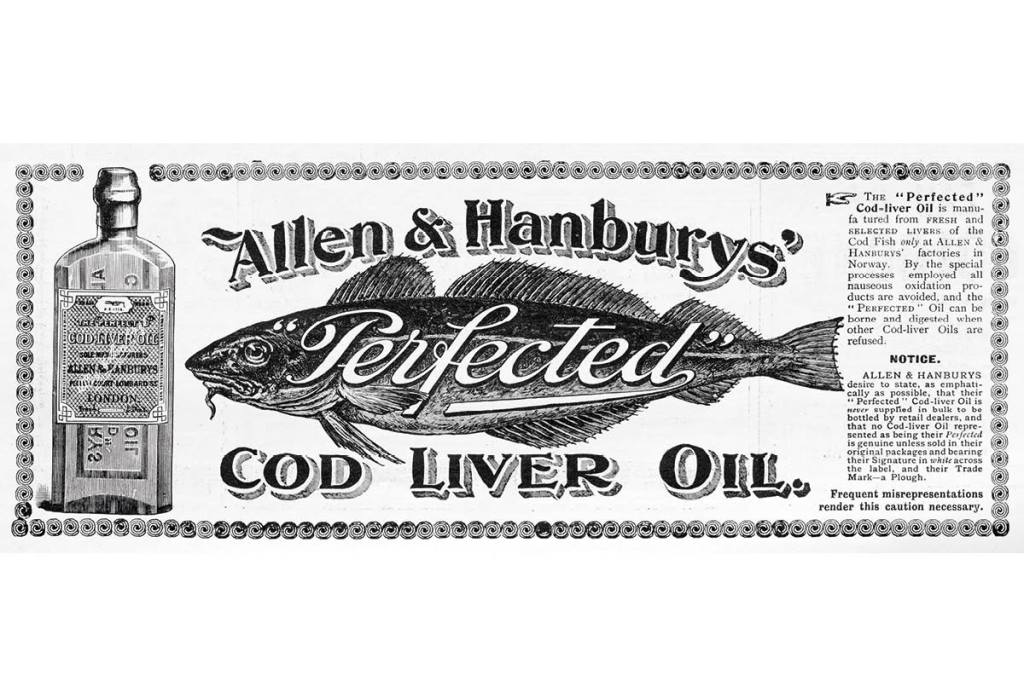In the apocryphal Book of Tobit, Tobias is sent by his father to retrieve some silver that is owed to him. On the way Tobias is attacked by a large fish on the banks of the river Tigris. He cries out to his companion, a man named Azarias (he’s the angel Raphael in disguise), who tells him to grab it and bring it ashore. “Take out the entrails of the fish,” Raphael tells him, “and lay up his head, and his gall, and his liver for thee; for these are necessary for useful medicines.” Tobias seems skeptical. How, exactly, can the liver and gall of a fish be helpful? According to Raphael, “If a demon or evil spirit gives trouble to anyone, you make a smoke from these before the man or woman, and that person will never be troubled again.”
And so it proves to be. Only three verses later Tobias hears of the plight of a young woman, Sarah; “sensible and beautiful,” but plagued by misfortune. Every man she marries dies on their wedding night. It is not her fault, her father says — Asmodeus the demon has possessed her out of jealous love and killed all seven of her earthly husbands. Raphael tells Tobias to marry Sarah, but Tobias is understandably concerned about the prospect. Raphael reassures him: “do not worry about the demon… When you enter the bridal chamber, you shall take live ashes of incense and lay upon them some of the heart and liver of the fish so as to make a smoke. Then the demon will smell it and flee away, and will never again return.” Tobias takes the gamble and marries Sarah and, thanks to the fish liver, survives the wedding night.
In the ancient world, oil from fish livers was believed to hold a wide range of medicinal properties; the Book of Tobit also credits it with healing Tobit’s blindness. In the Middle East it was used to treat conjunctivitis and other maladies of the eyes. The Vikings believed the liver oil from Atlantic cod prevented symptoms brought by the cold weather — stiff muscles, aching joints and arthritis. In most of Scandinavia, they still do: A study conducted by the European Prospective Investigation into Cancer and Nutrition asked almost 40,000 Norwegian women whether they take cod-liver oil to prevent cancer and other serious conditions: 44.7 percent said they do. Norwegian women make their kids take cod-liver oil too.
When my brother-in-law was a child in Norway he was given it to drink every day before school, often instead of breakfast. It was so strong and fishy it made him nearly vomit on his daily commute to school. He no longer lives in Norway and can’t get hold of the really good stuff — Möller’s, straight from the bottle — but he’d still be drinking it if he could.
In Iceland they take it in shot glasses with their breakfast — they consider it “the fountain of youth.” I can personally attest to this — on a recent trip to Iceland I came to down for breakfast to find cod-liver oil waiting on the buffet alongside Skyr and muesli. Iceland consistently ranks among the highest in the world for life expectancy, with an average age of eighty-two. They believe this is down to cod-liver oil, and they might be right.
We now know that the omega-3 fatty acids found in fish are hugely beneficial to our health. The DHA and EPA found in fatty acids act as anti-inflammatories and help lower cholesterol. A person with low levels of DHA and EPA has a higher chance of developing cardiovascular disease and Alzheimer’s. In pregnant women, low levels can also inhibit fetal development. The Vikings were also right about fish oil helping with the cold — the anti-inflammatory effects of omega-3s also help combat rheumatoid arthritis.
But the area in which omega-3’s medicinal qualities might have the greatest effect is in psychiatry. Recent studies have revealed that patients with depression, bipolar disorder, anxiety and schizophrenia have unusually low levels of omega-3 fatty acids in their red blood cells. Countries in which people eat a lot of fish also tend to have the lowest rates of depression and other mental illness. Correlation isn’t causation, of course, but some medical researchers are considering the latter, with the American Psychiatric Association now recommending that “patients with mood, impulse-control, or psychotic disorders should consume 1g EPA + DHA per day.” This is most easily done by taking cod-liver oil supplements.
There’s increasing evidence, at least anecdotally, for their helpfulness. Dr. Liz Miller, once among the top young neurosurgeons in Britain, has struggled with bipolar disorder for years; she is convinced that cod-liver oil is preventing the return of her symptoms. After she finally recovered, she decided to try alternative methods for preventing her symptoms. She stopped taking her medication and now takes only fish liver oil. In an interview for the BBC documentary The Secret Life of the Manic Depressive she says, “Diet is the foundation for treating mental illness,” though she agrees that psychiatric drugs are the only treatment for full-blown, acute mania. She argues, however, that “drugs are like training wheels” — once your symptoms are under control you can come off them and your diet will keep you from falling ill again. At the time of the interview, Dr. Miller had lived for fifteen years with no medication and no episodes of mania or depression.
I have bipolar disorder and, as recommended by my psychiatrist, I started taking cod liver oil after the diagnosis. I can’t say whether it’s helping — to test that theory I’d have to stop taking my meds, which my psychiatrist would certainly not recommend. But I am intrigued by the argument that cod-liver oil alone can treat conditions as severe as manic depression. It will be a while yet before its exact medical effects can be known, but it is beginning to cross over from fable into the realm of scientific fact. Perhaps one day, like Tobias and the angel Raphael, I might be willing to test whether cod-liver oil really can keep the demons at bay.
This article was originally published in The Spectator’s May 2024 World edition.


















